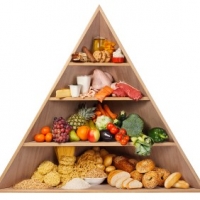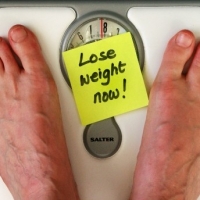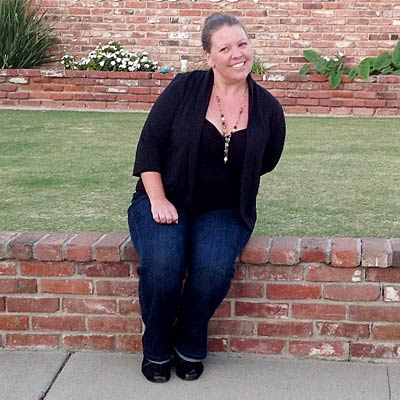Three Steps To Permanent Weight Loss
1. Understand nutrition.
If you really want to lose weight you have to know something about nutrition.
Understanding nutrition really just means knowing what you are putting into your mouth.
It is not enough to follow the latest diet fad. You have to know what you are eating.
If not, you can be fooled. How do you really know what is right for you and what isn't? How do you figure out why a new diet failed? Or what worked that you need to continue?
It all starts with learning something about nutrition, about what you are eating. It isn't too hard if you start with the basics.
There are labels on most foods. The labels are a good place to start. They list the calories as well as protein, fat, and carbohydrate content of foods. You can use them to compare foods and make wise choices.
You will also want to get a good book that has nutritional information that you can count on. When it comes to weight loss knowledge is power.
2. Make a plan.
Once you know something about nutrition, you have to make a plan. It doesn't have to be complicated, but you have to have some idea of where you are going.
You just take the basics you learned from reading your food labels and from your other reading, and figure out how you are going to use them. You make a simple plan that will fit with your life and your schedule.
For example, you start by finding out what protein is, where it comes from and why it is a crucial part of your permanent weight loss plan. Then you need to figure out where you are going to get the protein you need.
It may be as simple as cooking some chicken breasts to have in your lunch for the week. You can cook once per week if that fits your schedule, and pack each meal in an airtight container, one for each day. Taking you lunch in a cooler will not only help you eat right, it will save a lot of money you would otherwise have to spend buying your lunch.
Or, it might be as simple as carrying a protein bar in your purse or briefcase.
You have to make sure that good, nutritious and satisfying food is available when hunger strikes. It won't do you much good to know what you should be eating, only to look around when you get hungry and all you can find is potato chips and soda.
A little planning goes a long ways toward reaching your goals.
3. Keep your eye on your goal.
If you want to lose weight and keep it off, you have to keep your eye on your goal. Set a reasonable goal for yourself, and stick to it.
One way to set a goal is to use the "body mass index." The body mass index is simply a way of finding how much you should weigh based on how tall you are.
Just type "body mass index" into any internet search engine, and you will find a calculator that will do the work for you. A number of 25 or less is considered normal. But remember, any weight you take off, even if you don't get quite to your "ideal weight," is going to have tremendous benefits for your overall health and for your mental outlook.
You are probably going to have some ups and downs; most people do. But don't let them throw you off.
Learn what you need to know about what you eat, make a plan, and then keep your eye on your goal. The little slips, the little backslides, don't worry about these things. Look at the larger picture. Make a decision about how you want to look and what you want to do with your life.
So you lost 20 pounds and gained back 2, or 3, or 5. It happens. But you've still made progress. Don't give up.
Expect the little setbacks. They happen to everyone. Don't let it get you down and you will succeed.
Follow these steps, learn something about nutrition, make a plan, and stick to it. And you will finally have the body you always wanted!
Copyright 2006 Dan Curtis, M.D.
- Prev:Eating the Right Way
- Next:How To Not Lose Weight
Related Articles
-
Being Well Informed about Chin Liposuction Risks Can Save Your Life
Your face tells a lot about you and a person that unfortunately has th
-
Laser Treatment for Cellulite: is It Good?
There are a few different options that are available for people suffer
-
How The Motto Be Prepared Can Help You Lose Weight
Be Prepared. For the Boy Scouts it means you are alw
-
Why Mothers Don't Lose Pregnancy Weight and How To Overcome It
Its very normal to gain significant amounts of weight while you are pr
-
Weigh in With Jen: Part 4 – Choosing a Diet Plan
-
Successful Weight Loss In Five Easy Steps
If you happen to be among the millions of people who are weight impair
- DON'T MISS
- The Age-Proof Diet
- Fast Weight Loss - 4 Surefire Tips to Fit into Your Old Prom Dress at the Next Class Reunion
- The Fastest Way to Fat Loss
- What are the Best Exercises to Lose Weight?
- The Quickest Weight Loss System
- The One System You Must Try If You Are Struggling to Lose Weight!
- Supplements to Help Relieve Depression
- The Diet Of A Cheetah
- Using Herbs for Weight Loss
- How to Track My Wifes Cell Phone Calls




